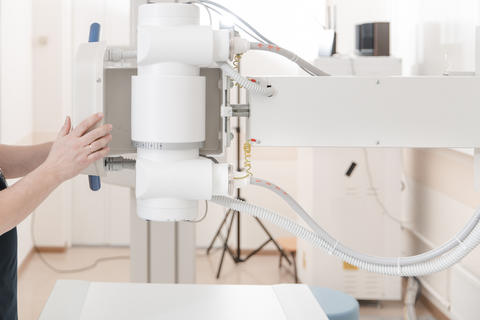
Medical physicists apply the principles of physics in the use of radiation for medical purposes. They protect people from unsafe and unnecessary exposure to radiation; ensure the availability of high-quality medical images; and direct and deliver proper doses of radiation. Examples of activities:
- calculate safe and effective dosages of radiation
- inspect, test, and calibrate medical devices that use or measure radiation
- oversee proper disposal of radioactive waste
- design the shielding needed around radiation sources
Medical physicists are licensed in one or more specialties:
- diagnostic radiological physics
- medical health physics
- medical nuclear physics
- therapeutic radiological physics
AAPM Medical Physics Video Transcript
Courtesy of AAPM Medical Physics 3.0
Salary and Projected Growth
Median salary: $161,547
Salary range: $106,000-$230,000
Projected growth: moderate (physics in general)
Where Could I Work?
Hospitals and cancer centers
Industry and government
Consulting
Academia and Research
Your Interests and Abilities
Physics and other sciences
Mathematics
Technology use and development
Professional Skills
Concern for others
Attention to detail
Problem solving
Communication
Curiosity
Education

Complete a master’s or doctoral degree in a Department-registered medical physics licensure program. A program accredited by the Commission on Accreditation of Medical Physics Education Programs (CAMPEP) is acceptable.
Experience

At least 2 years of full-time work experience in the specialty for which you seek licensure. A CAMPEP accredited residency is acceptable.
Examination

Examinations vary by specialty area of licensure.
What Interests You?
Match your interests and personality to career options! Explore a free career tool at mynextmove.org/explore/ip
Tip: try searching for mentoring programs—talk to a medical physicist about what they do and how they got started!
